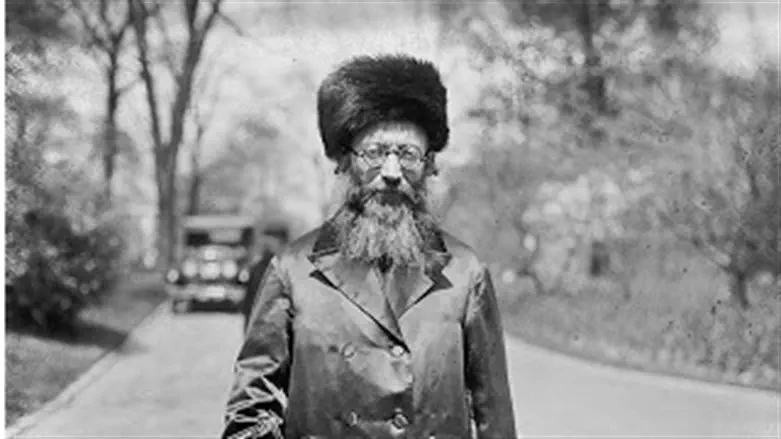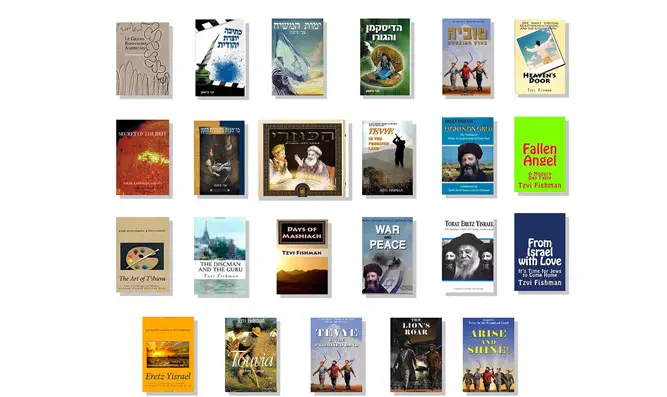
A song of Bob Marley declares: “You think it’s the end, you think it’s the end, but it’s just the beginning….” So too with our war against Hamas. It’s just the beginning. After Yishmael learns its lesson, Esav is waiting on line. The widespread and growing opposition to Israel and the explosion of anti-Semitism against Jews reawakened by the war in Gaza is a clear sign that Islamic radicalism is not our only enemy. The world’s hatred toward Israel, highlighted by false accusations and blood libel on an international level, remind us of the Halakhah decreed long ago by Rabbi Shimon Bar Yochai: “Esav hates Yaakov” (See Rashi, Breishit 33:4, on the Sifre).
Esav, who was Yaakov’s brother, is also known as Esau. His progeny became the kingdom of Edom whose rule spread to Greece and Rome. Who are the descendants of Edom today? Germany, Russia, Europe, and America are prominent offshoots. Look at the architecture of the government buildings in Washington D.C. The porticos, columns and friezes are decidedly Roman. Basically, modern Western culture throughout the Christian world derives from the Roman Empire of old.
We like to think that after the horror of the Holocaust, the Gentiles realized the monstrosity of the Nazis and felt embarrassed by the slaughter inflicted upon the Jews. But lo and behold, a new generation has arisen which, like Pharaoh, doesn’t know Joseph. In public schools throughout the world, the history of the Holocaust is not learned like it is in Israel and in Jewish schools in the Diaspora. Today, in places where such courses existed the subject is being dropped so not to offend the Muslims. In other words, the post-Holocaust sympathy toward the Jews has ended. Young gentiles don’t know what the Holocaust was, and very often, their parents who do know, deny it.
In modern times, Rabbi Moshe Feinstein was one of the most outstanding authorities of Jewish Law. Based in New York, his opinions were valued throughout the Torah world. He wrote: “We have to realize that hatred of the Jews by all nations is very great, even in the nations that behave properly (toward Jews). I have already explained concerning Rashi’s language in his Torah commentary… on the word וישקהו (when Esav embraces Yaakov after their long separation). Rabbi Shimon bar Yohai says: ‘It is a well-known Halakhah that Esav hates Yaakov.’ And why is the word Halakhah relevant here? It is because just as Halakhah never changes, so also Esav’s hatred of Yaakov never changes. Even in those (nations) that behave well (toward Jews), their hatred [of Jews] is very strong (Igrot Moshe, Chol HaMoed, 2:77).
What does this mean for us today and why is the current war against Hamas only the beginning? The Arab attack on Israel that took place on Simchat Torah was a wake-up call for world Jewry, forcing us to take a deeper look at who we are as a People and in which direction does our destiny lie. In down-to-earth language, Hashem did not bring Am Yisrael into the world to eat two-decker, glatt-kosher hamburgers, or to spend the holiday of Pesach on Caribbean cruises, or to send Jewish children to Ivy League colleges in America, or to be become Hebrew-speaking Gentiles in Israel, as Rabbi Meir Kahane was wont to say.
Hashem created Am Yisrael to be His holy messengers to teach mankind to understand that Hashem is the one-and-only Master of the World and that all peoples on Earth must follow His enlightening moral ways.
In the midst of World War One when the nations of the world were engaged in a savage outburst of killing and destruction, Rabbi Kook wrote the following:
“The moral repression found in the profane culture which exerted vast dominion over the nations, brought oppression to their hearts, and caused evil traits, diseases, and anger to multiply and be pent up in the depths of their souls. And now these are erupting their fetters through the horrendously bloody and awesomely cruel battles, which are more in keeping with their still unrefined natures.”
Rabbi Kook sought to explain how an enlightened, industrialized, and cultured Europe could unleash such destructive barbaric forces that brought the world to a cataclysmic and death-filled war. Some 20,000,000 people were killed and another 21,000,000 wounded. What went wrong?
The “profane culture” he writes about which grew to dominate Western civilization is Edom/Esav which became dominated by the outgrowth of Christianity whose doctrines of repression burst through its outer guise of gentility and brotherhood into a monstrous storm of violence and hate. Rabbi Kook explains that in denying the Torah and its commandments, Christianity separated mankind from Hashem. Unlike the constant self-correction and moral improvement demanded by the Torah, through the diligent work of perfecting character traits, Christianity’s false show of morals proved impotent in uplifting man’s baser traits. Only the Torah, Rabbi Kook explains, has the unique power to refine man’s nature. All other disciplines, whether religious, secular, philosophical, or scientific, can add to man’s quantitative knowledge, but they cannot effect any lasting inner change.
In his eye-opening essays in “Orot” Rabbi Kook teaches that Christian civilization, and the profane secular culture which grew out from it, knows what is evil, but does not know how to correct it. It learned about morals from the Hebrew Bible, but in cutting itself off from Israel and the commandments of the Torah, requiring only a statement of belief in the Christian messiah, it separated mankind from the one and only path to Hashem and true morality.
Rabbi Kook uses the expression, “Forgetters of Hashem in their innards and carrying His Name on the lips,” (Orot, 2:8). According to Rabbi Kook’s Torah worldview, Christianity left man simmering in secular and pseudo-religious darkness in a cauldron of unrefined passions and lusts which finally exploded in the devastating world war. He continues:
“The sin of those who shed blood is saturated with stain - the evil kings of the land and the murderers who bring terror on the earth. ‘The land will not be atoned for the blood which has been spilled upon it except through the blood of those who spilled it’ (Jeremiah, 2:22), and atonement is sure to come – the total annulment of all of today’s cultural edifices, with all of their lies and deceit, with all of their evil pollutions and venomous poisons. The entire culture which flatters itself with melodious lies must be erased from the world, and in their stead will be established the kingdom of the high holy ones.”
Here we can see that although Rabbi Kook loved all of humanity, he wasn’t blind to the evil which existed in the world and he demands, in the light of the Torah and Prophets of Israel, that the evil culture haunting mankind be obliterated from the earth. In its place will shine forth the light of Israel whom he refers to as “the high holy ones.”
“The light of Israel will appear, to establish a world whose nations are possessed of a new spirit, nations who will no longer speak emptiness, and who will no longer act contemptuously against Hashem and against His Mashiach, against the life-light of the world, and against the perfection and belief embodied in the eternal covenant of the Torah… Then it will be known and proven that only in Him, in the G-d of Israel, is there salvation, and the salvation of Hashem will surely come… ‘And it shall come to pass in the end of days, that the mountain of the Lord’s House shall be established on the top of the mountains, and shall be exalted above the hills, and all of the nations shall stream unto it’” (Orot, Chapter 2:8).
May it be soon.
Tzvi Fishman was awarded the Israel Ministry of Education Prize for Jewish Culture and Creativity. Before making Aliyah to Israel in 1984, he was a successful Hollywood screenwriter. He has co-authored 4 books with Rabbi David Samson, based on the teachings of Rabbis A. Y. Kook and T. Y. Kook. His other books include: "The Kuzari For Young Readers" and "Tuvia in the Promised Land". His books are available on Amazon. Recently, he directed the movie, "Stories of Rebbe Nachman."
